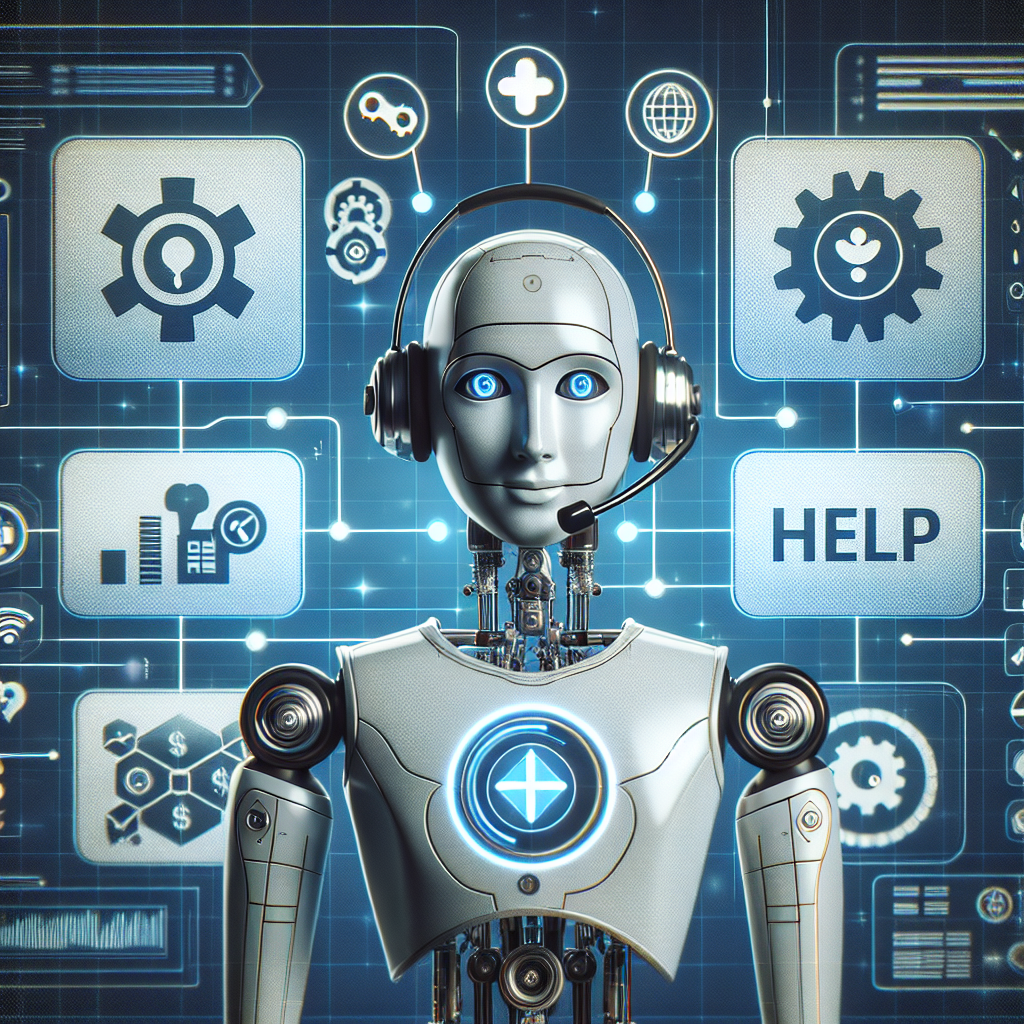AI-Powered Customer Service: Benefits and Challenges
In today’s fast-paced business environment, customer service is more important than ever. Companies must be able to provide timely and effective support to their customers in order to maintain their loyalty and satisfaction. With the rise of artificial intelligence (AI), businesses now have the opportunity to streamline their customer service processes and provide a more personalized experience to their customers. AI-powered customer service has the potential to revolutionize the way companies interact with their customers, but it also comes with its own set of challenges.
Benefits of AI-Powered Customer Service
1. Increased Efficiency: One of the biggest benefits of AI-powered customer service is the ability to handle a large volume of customer inquiries quickly and efficiently. AI-powered chatbots can provide instant responses to common customer queries, freeing up human agents to focus on more complex issues.
2. 24/7 Support: AI-powered customer service can provide round-the-clock support to customers, regardless of time zone or location. This ensures that customers can get assistance whenever they need it, leading to increased satisfaction and loyalty.
3. Personalization: AI-powered customer service can analyze customer data to provide personalized recommendations and solutions. By understanding customer preferences and behavior, AI can tailor responses to individual needs, leading to a more personalized and engaging customer experience.
4. Cost-Effective: Implementing AI-powered customer service can help reduce costs for businesses by automating repetitive tasks and reducing the need for human agents to handle basic inquiries. This can lead to significant cost savings while still providing high-quality customer support.
5. Data Analysis: AI-powered customer service can collect and analyze large amounts of customer data to identify trends, patterns, and areas for improvement. This data can be used to enhance the customer experience, improve products and services, and drive business growth.
Challenges of AI-Powered Customer Service
1. Lack of Human Touch: While AI-powered customer service can provide quick and efficient responses, it lacks the human touch that comes with interacting with a real person. Some customers may prefer speaking with a human agent, especially when dealing with complex or sensitive issues.
2. Training and Implementation: Implementing AI-powered customer service requires significant time and resources for training and implementation. Companies must invest in training their AI systems to understand customer inquiries and provide accurate responses, which can be a complex and time-consuming process.
3. Technical Issues: AI-powered customer service systems are not infallible and can experience technical issues or glitches that can disrupt the customer experience. Companies must be prepared to address these issues quickly and effectively to minimize impact on customer satisfaction.
4. Privacy and Security Concerns: AI-powered customer service systems collect and analyze large amounts of customer data, raising concerns about privacy and security. Companies must take steps to ensure that customer data is protected and used responsibly to maintain customer trust.
5. Customer Resistance: Some customers may be resistant to AI-powered customer service, preferring to interact with a human agent instead. Companies must find a balance between AI and human customer service to cater to the needs and preferences of all customers.
FAQs
Q: Will AI-powered customer service replace human agents?
A: While AI-powered customer service can automate many routine tasks, human agents will still play a crucial role in handling complex or sensitive customer inquiries. AI and human agents can work together to provide a seamless and personalized customer experience.
Q: How can AI-powered customer service improve the customer experience?
A: AI-powered customer service can improve the customer experience by providing quick and efficient responses, personalized recommendations, and round-the-clock support. By analyzing customer data, AI can tailor responses to individual needs and preferences, leading to a more engaging and satisfying customer experience.
Q: What steps can companies take to address privacy and security concerns with AI-powered customer service?
A: Companies can address privacy and security concerns by implementing robust data protection measures, obtaining customer consent for data collection and use, and ensuring that AI systems comply with relevant data protection regulations. Transparency and accountability are key to maintaining customer trust in AI-powered customer service.
Q: How can companies ensure that AI-powered customer service is effective and reliable?
A: Companies can ensure that AI-powered customer service is effective and reliable by investing in training and development, monitoring performance metrics, and continuously optimizing AI systems based on customer feedback. Regular testing and quality assurance are essential to maintaining the performance and reliability of AI-powered customer service.
In conclusion, AI-powered customer service has the potential to revolutionize the way companies interact with their customers, providing increased efficiency, personalized experiences, and cost savings. However, it also comes with its own set of challenges, including the lack of human touch, technical issues, and privacy concerns. By addressing these challenges and leveraging the benefits of AI-powered customer service, companies can enhance the customer experience and drive business growth in today’s competitive marketplace.

